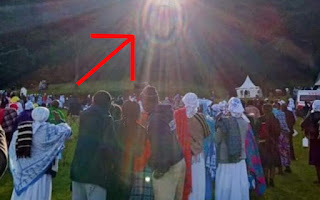Christopher Hitchens was wrong about Mother Teresa
In 1994, the journalist and polemicist Christopher Hitchens published a book called The Missionary Position: Mother Teresa in Theory and Practice, in which he accused the Nobel Peace Prize laureate of being a fraud, a fanatic, and a friend of dictators. He claimed that she exploited the poor, neglected their medical needs, and imposed her religious views on them. He also alleged that she received millions of dollars in donations from dubious sources and used them for dubious purposes.
Hitchens' book sparked a controversy that has lasted for decades, with many critics and supporters of Mother Teresa weighing in on the debate. But how accurate and fair was Hitchens' portrayal of the "saint of the gutters"? Was he right to expose her flaws and question her motives, or did he distort the facts and slander her reputation?
In this blog post, I will argue that Hitchens was wrong about Mother Teresa, and that his book was a biased and misleading attack on one of the most compassionate and selfless human beings who ever lived. I will examine some of the main accusations that Hitchens made against Mother Teresa, and show why they are either false, exaggerated or irrelevant. I will also present some of the evidence that supports Mother Teresa's legacy as a genuine humanitarian and a faithful servant of God.
Mother Teresa did not exploit the poor
One of the most common charges that Hitchens leveled against Mother Teresa was that she exploited the poor and suffering people who came to her hospices, known as "Homes for the Dying". He claimed that she did not provide them with adequate medical care, pain relief or hygiene, but rather let them die in agony and filth, while telling them that their suffering was a gift from God and a way to salvation.
This accusation is based on a distorted and selective view of Mother Teresa's work and philosophy. First of all, it is important to understand that Mother Teresa's hospices were not hospitals or clinics, but places where people who had no one else to care for them could find shelter, comfort and dignity in their last moments. They were not meant to cure diseases or prolong life, but to offer love and respect to those who were rejected by society and abandoned by their families. As Mother Teresa herself said: "We are not here to solve all the problems of the world but to touch those whom we can with the love of Christ."
Secondly, it is not true that Mother Teresa denied or neglected the medical needs of her patients. She had a team of doctors and nurses who visited her hospices regularly and provided basic medical care, such as antibiotics, bandages, vaccinations and vitamins. She also referred some of her patients to hospitals or clinics when they needed more advanced treatment or surgery. She did not oppose modern medicine or science, but rather used them as tools to serve the poor. She even accepted an honorary degree from Harvard Medical School in 1982, where she praised the achievements of medical science and urged the students to use their skills for the benefit of humanity.
Thirdly, it is not true that Mother Teresa imposed her religious views on her patients or forced them to convert to Catholicism. She respected the faith and culture of each person she served, regardless of their religion or background. She did not baptize anyone without their consent or knowledge, as Hitchens falsely claimed. She only offered spiritual guidance and prayers to those who asked for them or expressed an interest in them. She also encouraged interfaith dialogue and cooperation among different religious groups. She once said: "There is only one God and He is God to all; therefore, it is important that everyone is seen as equal before God."
Mother Teresa did not receive money from dubious sources
Another accusation that Hitchens made against Mother Teresa was that she received millions of dollars in donations from corrupt or criminal sources, such as dictators, fraudsters, and arms dealers. He claimed that she accepted money from people like Charles Keating, Robert Maxwell, Jean-Claude Duvalier, and Enver Hoxha, without questioning their motives or morality. He also alleged that she used the money for dubious purposes, such as building convents or supporting anti-abortion campaigns, rather than helping the poor.
This accusation is based on a distorted and selective view of Mother Teresa's finances and activities. First of all, it is important to understand that Mother Teresa did not personally handle or manage the money that was donated to her organization, known as the Missionaries of Charity. She had a team of accountants and auditors who were responsible for keeping track of the funds and ensuring their proper use. She also had a board of trustees who oversaw the financial affairs of the organization and made decisions about its projects and programs.
Secondly, it is not true that Mother Teresa accepted money from anyone without checking their background or ethics. She had a policy of not accepting donations from sources that were involved in activities that contradicted her values or principles, such as violence, oppression, or injustice. She also returned or refused donations that came with strings attached or conditions that interfered with her mission or vision. She once said: "We do not accept money that has blood on it."
Thirdly, it is not true that Mother Teresa used the money for dubious purposes or wasted it on unnecessary expenses. She used the money for various humanitarian and social causes, such as building and running schools, orphanages, leprosy clinics, AIDS centers, soup kitchens, shelters, and hospices around the world. She also supported various campaigns and initiatives that promoted human dignity and rights, such as the abolition of the death penalty, the protection of refugees, and the prevention of child trafficking. She was transparent and accountable about her spending and reporting and submitted annual reports to the Vatican and other authorities.
Mother Teresa was not a friend of dictators
Another accusation that Hitchens made against Mother Teresa was that she was a friend of dictators and tyrants and that she praised or supported them in exchange for favors or recognition. He claimed that she endorsed or legitimized regimes that were responsible for atrocities, human rights violations and oppression, such as those of Albania, Haiti, Nicaragua and Guatemala. He also alleged that she ignored or dismissed the suffering and grievances of the people who lived under those regimes, and that she betrayed her own principles of peace and justice.
This accusation is based on a distorted and selective view of Mother Teresa's diplomacy and politics. First of all, it is important to understand that Mother Teresa was not a politician or a diplomat, but a humanitarian and a religious leader. She did not have any political agenda or affiliation, but rather followed her conscience and her faith. She did not seek or accept any political power or influence, but rather used her moral authority and reputation to advocate for the poor and the oppressed.
Secondly, it is not true that Mother Teresa praised or supported dictators or tyrants. She did not endorse or legitimize any regime or ideology, but rather challenged them to respect human dignity and rights. She did not ignore or dismiss the suffering and grievances of the people who lived under those regimes, but rather spoke out for them and offered them assistance. She also criticized and condemned violence and injustice wherever she saw them, regardless of who committed them or why. She once said: "We are called upon not to be successful, but to be faithful."
Thirdly, it is not true that Mother Teresa betrayed her own principles of peace and justice. She did not compromise or dilute her values or principles, but rather lived them out in her words and actions. She did not avoid or evade conflict or controversy, but rather faced them with courage and compassion. She also forgave and reconciled with those who wronged her or opposed her, regardless of their status or position. She once said: "If we have no peace, it is because we have forgotten that we belong to each other."
Conclusion
In conclusion, I have shown that Christopher Hitchens was wrong about Mother Teresa and that his book was a biased and misleading attack on one of the most compassionate and selfless human beings who ever lived. I have examined some of the main accusations that Hitchens made against Mother Teresa, and shown why they are either false, exaggerated, or irrelevant. I have also presented some of the evidence that supports Mother Teresa's legacy as a genuine humanitarian and a faithful servant of God.
Ironically, Hitchens was hired to be the devil's advocate in the cause of Mother Teresa. His job was to show evidence of why should did not live an exemplary holy life. He failed miserably to convince the Vatican.
Mother Teresa was not a fraud, a fanatic, or a friend of dictators. She was a saint, a hero, and a friend of the poor. She is still remembered today while Hitchens is forgotten, only existing in silly memes on Reddit, Facebook, and Twitter.
Here are some references that challenge Hitchens' allegations and defend Mother Teresa's legacy:
*Sources:*
1. [The Atheist Vs. The Saint: Why Christopher Hitchens 'Hated' Mother Teresa](https://www.christianpost.com/news/the-atheist-vs-the-saint-why-christopher
- [Mother Teresa: Beyond the Image](https://www.amazon.com/Mother-Teresa-Beyond-Image-Anniversary/dp/0385491370) by Anne Sebba. This book is a balanced and sympathetic biography of Mother Teresa that explores her motivations, challenges, and achievements.
- [Unmasking Mother Teresa's Critics](https://www.amazon.com/Unmasking-Mother-Teresas-Critics-Bill/dp/1621640407) by Bill Donohue. This book is a rebuttal of Hitchens' book The Missionary Position and other critics of Mother Teresa. It exposes the flaws and fallacies of their arguments and provides factual evidence to support her sanctity.
- [Mother Teresa: Come Be My Light](https://www.amazon.com/Mother-Teresa-Private-Writings-Calcutta/dp/0307589234) by Brian Kolodiejchuk. This book is a collection of Mother Teresa's personal letters that reveal her inner struggles, doubts, and joys. It shows her deep love for God and her desire to follow his will.
- [Mother Teresa: The Case for The Cause](https://www.catholiceducation.org/en/controversy/common-misconceptions/mother-teresa-the-case-for-the-cause.html) by Fr. Brian Kolodiejchuk. This article is a summary of the process and evidence for Mother Teresa's beatification and canonization. It addresses some of the common objections and misconceptions about her life and work.


.jpg)



.jpeg)


